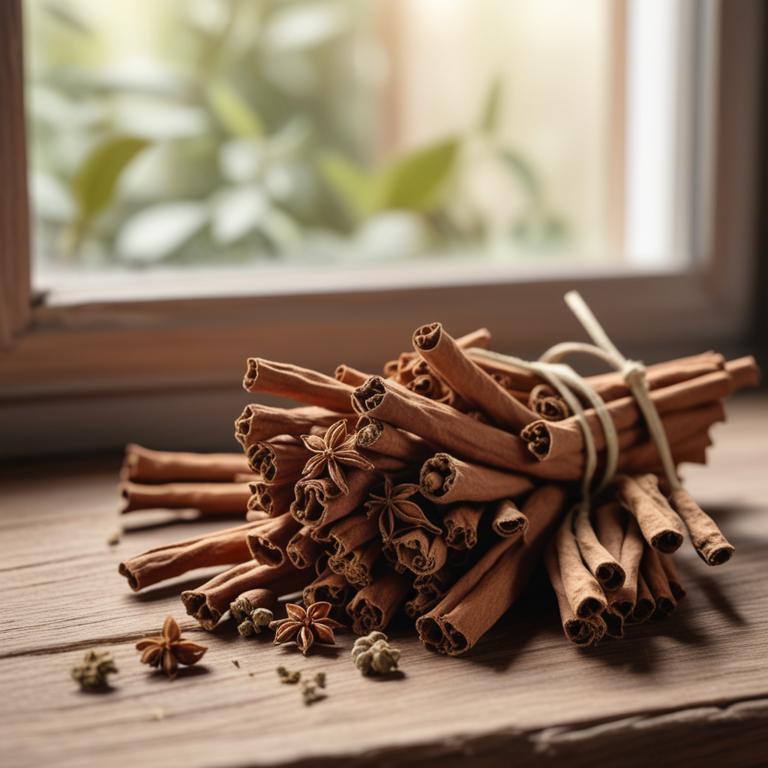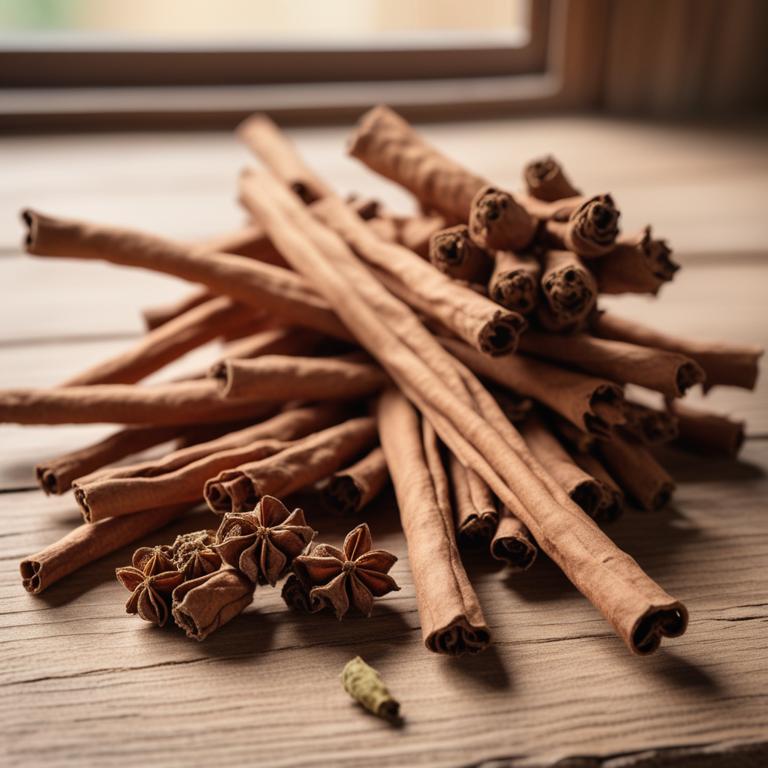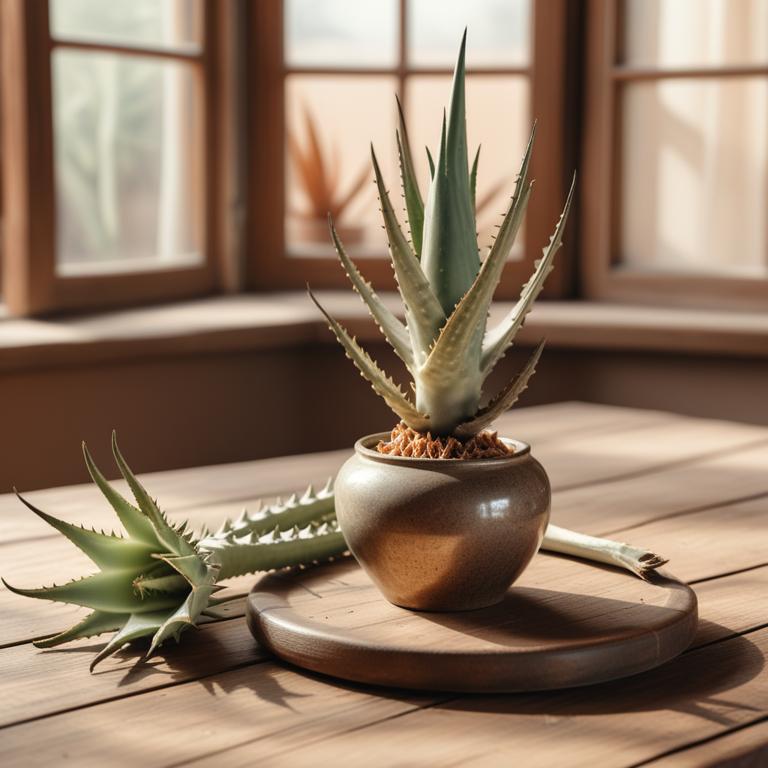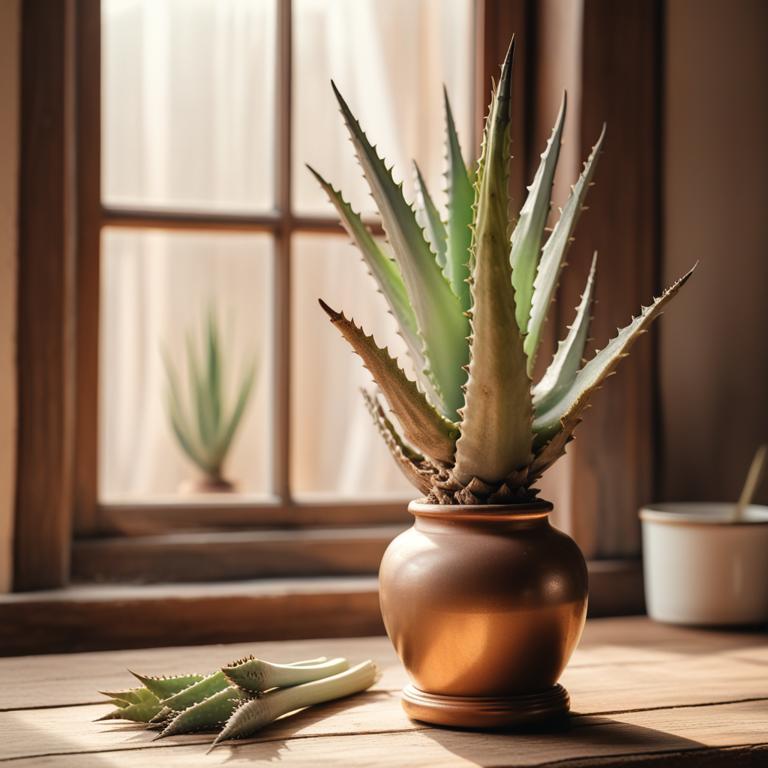Updated: Dec 1, 2024
Cold Sore: Understanding Causes, Medicinal Herbs, and Natural Remedies for Relief
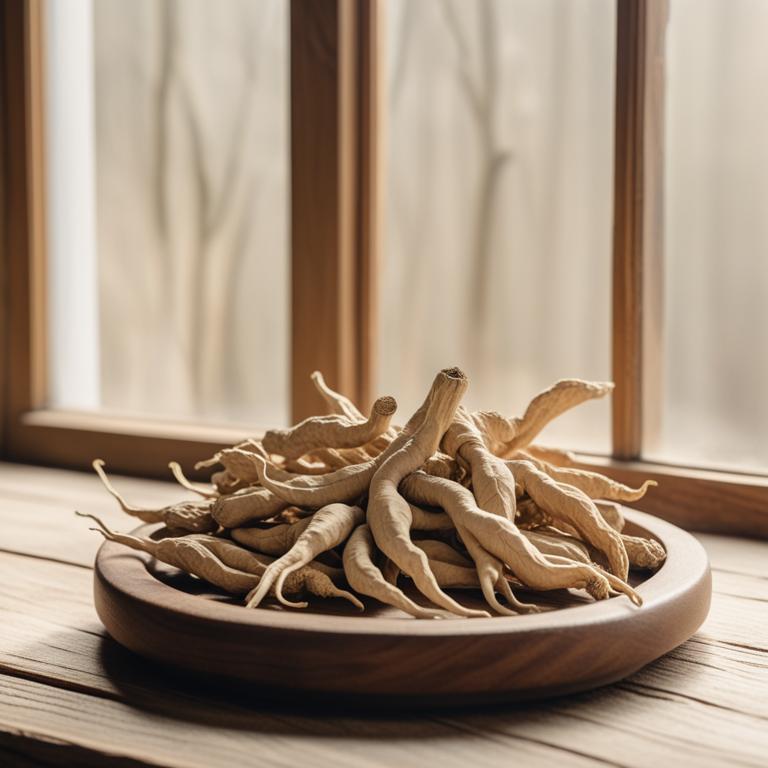
Cold sores are painful, fluid-filled blisters that appear on the lips or mouth.
They can be embarrassing and make everyday activities, like eating or talking, uncomfortable. Cold sores are caused by a viral infection, specifically the herpes simplex virus, which is highly contagious. Once you have the virus, you'll likely get cold sores again and again. Herbal remedies can help alleviate the symptoms and speed up the healing process.
Plants like aloe vera, tea tree oil, and chamomile have anti-inflammatory and antiviral properties that can help soothe the skin and reduce redness. Lemon balm, a member of the mint family, is also known to have antiviral properties and can help calm the virus. To use these herbs, you can make teas or apply them topically. You can steep dried lemon balm leaves in hot water to make a tea that you can drink several times a day. You can also apply aloe vera gel directly to the cold sore to help soothe the skin.
Some people also use tea tree oil as a mouthwash to help reduce the virus's spread.
Table of Contents
What causes the onset of cold sore?
The main causes of cold sore are several factors that trigger the outbreak of this painful and unsightly condition.
One of the primary causes is the herpes simplex virus type 1 (HSV-1), a highly contagious virus that affects millions of people worldwide. When HSV-1 infects the skin, it lies dormant until it's triggered by something, causing the virus to re-activate and produce cold sore symptoms. Another significant cause of cold sore is hormonal changes, particularly during periods of high estrogen levels, such as during pregnancy, menstruation, or menopause. These hormonal fluctuations can cause the virus to re-activate, leading to cold sore outbreaks.
Stress is also a major contributor to cold sore outbreaks. When we're under stress, our immune system weakens, allowing the dormant virus to re-activate and cause symptoms. This is because stress triggers the release of certain hormones, such as cortisol, which can suppress the immune system and allow the virus to thrive. Lastly, sunlight exposure is another common trigger for cold sore outbreaks. Prolonged exposure to sunlight can cause the virus to re-activate, leading to painful and unsightly cold sore symptoms.
This is because sunlight damages the skin, allowing the virus to multiply and cause symptoms.
What are the benefits of using herbal remedies for cold sore?
Using herbs for cold sore treatment can bring several benefits.
For one, they can help reduce the pain and discomfort associated with cold sores. These herbs have anti-inflammatory properties that can calm down the skin and reduce swelling.
They can also speed up the healing process by promoting the growth of new skin cells. In addition, many of these herbs have antiviral properties that can help combat the underlying cause of cold sores. This means they can help prevent future outbreaks by keeping the herpes virus under control.
Some herbs can also help soothe the skin and reduce the risk of scarring.
What are the primary medicinal herbs used for cold sore treatment?
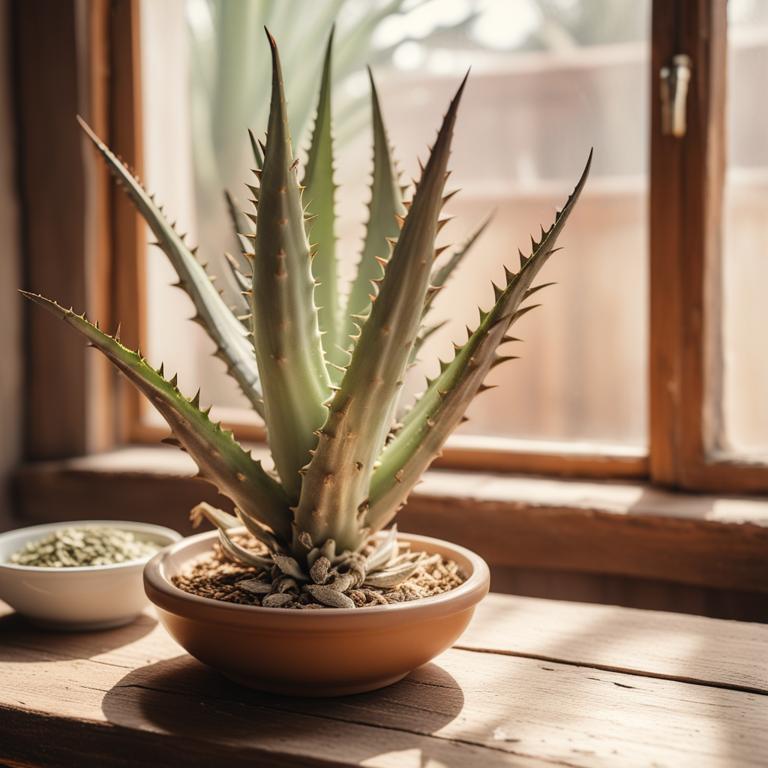
When it comes to cold sores, herbs can be a great natural remedy to help alleviate the discomfort.
Aloe barbadensis, also known as aloe vera, is often used to soothe and calm irritated skin, which is exactly what cold sore sufferers need. Its anti-inflammatory properties help reduce redness and swelling, making it a great topical treatment. Another herb that's commonly used is Echinacea purpurea, which is known for its immune-boosting properties. Taking Echinacea supplements or applying it topically can help your body fight off the herpes simplex virus that causes cold sores. This can lead to fewer and less severe outbreaks. For those looking for a natural antiseptic, Melaleuca alternifolia, also known as tea tree oil, is a great option.
It has antibacterial and antiviral properties that can help combat the infection and reduce the severity of symptoms. Ginger, specifically Zingiber officinale, is another herb that can be beneficial in managing cold sore symptoms. Its anti-inflammatory properties can help reduce pain and swelling, while its antiseptic properties can help combat infection. Finally, Lavandula angustifolia, or lavender, is a calming herb that can help soothe and relax the skin, reducing the discomfort and pain associated with cold sores. Its antiseptic properties can also help combat infection, making it a great addition to any cold sore treatment regimen. It's worth noting that while these herbs can be beneficial in managing cold sore symptoms, they may not cure the condition.
However, using them in conjunction with other treatments can help alleviate discomfort and promote healing.
What are the most popular herbal treatments for cold sore?
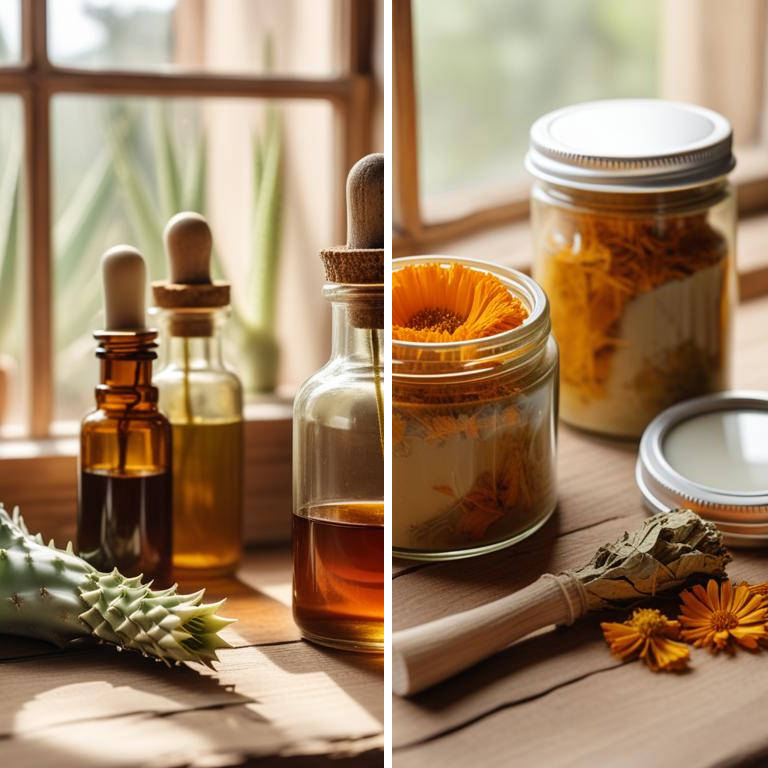
Herbal preparations can be very helpful in treating cold sores.
A tincture is a liquid extract of herbs, and it can be applied directly to the cold sore using a cotton swab. This helps to reduce the pain and inflammation quickly. Another option is a cream, which is a mixture of herbs and a base that moisturizes and soothes the skin.
This is great for people who prefer a gentle, non-greasy product. A salve is similar to a cream, but it's thicker and more protective, making it perfect for covering and shielding the cold sore from the environment. An ointment is also a thick, protective product that helps to lock in moisture and speed up the healing process. Herbal capsules, on the other hand, contain the active ingredients in a concentrated form that can be taken orally to boost the immune system and reduce the frequency and severity of cold sore outbreaks.
These different preparations cater to various needs and preferences, so people can choose the one that works best for them.
Additional Resources:
Which herbs should be avoided due to cold sore concerns?
If you have cold sores, you should be careful with Glycyrrhiza glabra because it can increase blood pressure, which might make your cold sore worse.
This herb is also known to cause fluid retention, which can lead to inflammation and discomfort. When it comes to Ginkgo biloba, it can thin the blood, making it more difficult for your body to heal the cold sore. This increased blood flow might also cause more pain and inflammation.
Cinchona officinalis contains quinine, which can cause heart problems, and people with cold sores may already have a weakened immune system. Using this herb could make your body more susceptible to these issues. Panax ginseng can stimulate your nervous system, which might make your cold sore outbreak worse by increasing stress and anxiety. This can make the healing process more challenging.
Valeriana officinalis can also cause blood thinning, similar to Ginkgo biloba, which can worsen the symptoms of a cold sore.
FAQ
Are there any specific herbs that can prevent cold sore?
Some herbs, like aloe vera, licorice root, and echinacea, may help reduce the severity and frequency of cold sores.
Aloe vera's anti-inflammatory properties can soothe the skin, while licorice root's antiviral properties may slow down the spread of the virus.
Echinacea is believed to boost the immune system, helping to fight off the infection.
Is it safe to use herbal remedies for cold sore during pregnancy?
When pregnant, it's best to be cautious with herbal remedies for cold sores.
Some herbs, like aloe vera, are safe to use on cold sore skin to help heal and soothe. However, other herbs like echinacea and licorice root may not be recommended during pregnancy.
Always check the ingredient labels carefully.
Are there any herbs that can reduce the frequency of cold sore?
Research suggests that some herbs may help reduce the frequency of cold sores.
Aloe vera gel and licorice root have been studied for their potential to soothe and calm the skin. They may also help reduce inflammation and promote healing.
Some people find that applying aloe vera gel to the affected area can help ease symptoms and speed up recovery.
Related Articles
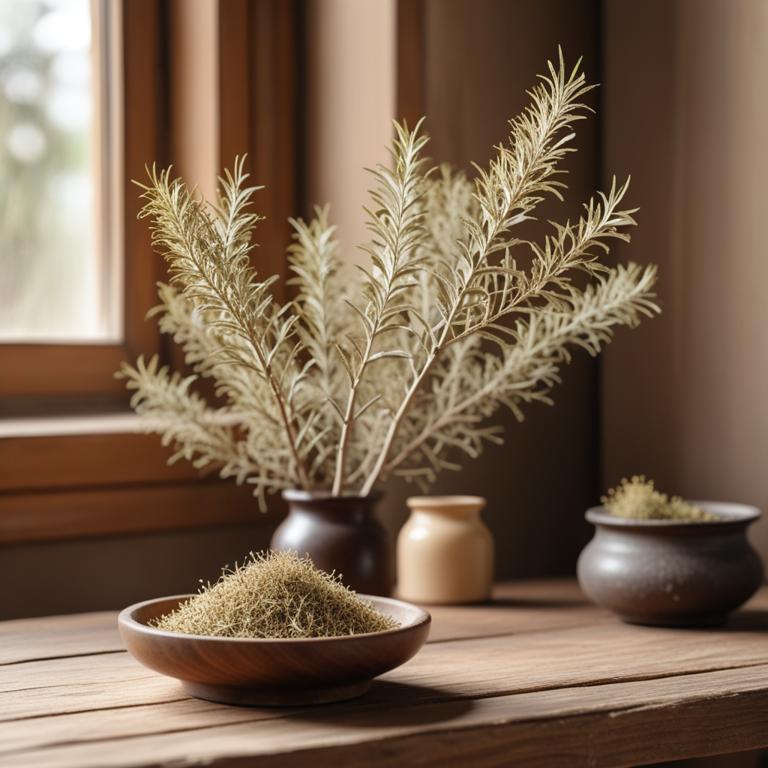
Natural Treatments for Nail Fungus: Causes and Herbal Remedies
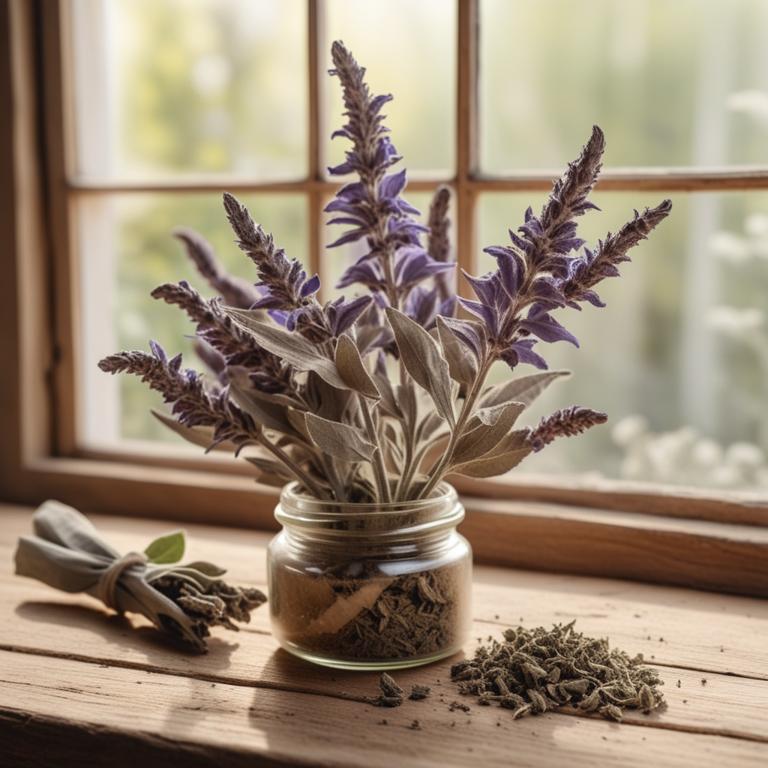
The Role of Medicinal Herbs in Preventing and Treating Dental Plaque
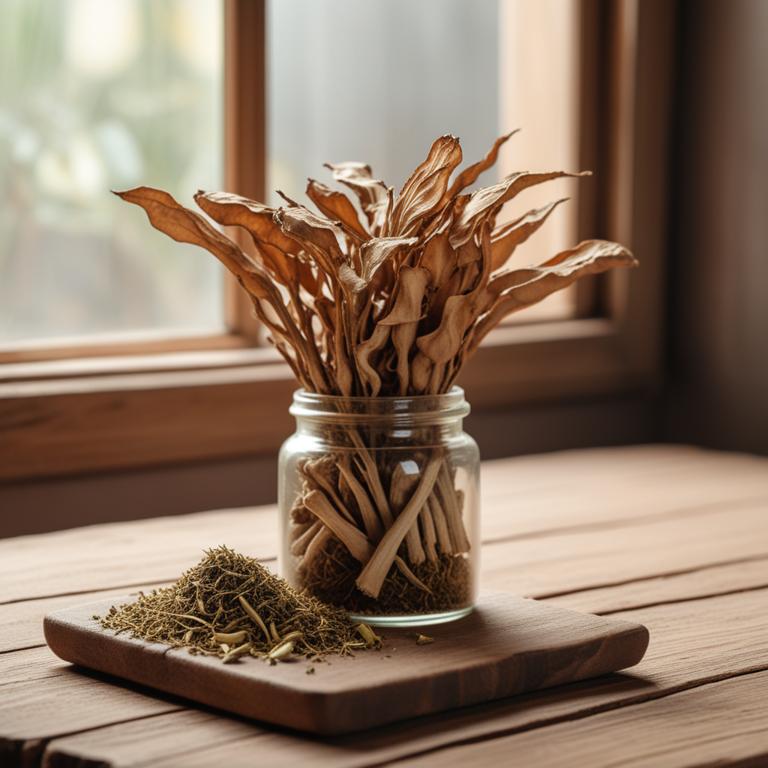
Swollen Gums Causes and Natural Herbal Preparations
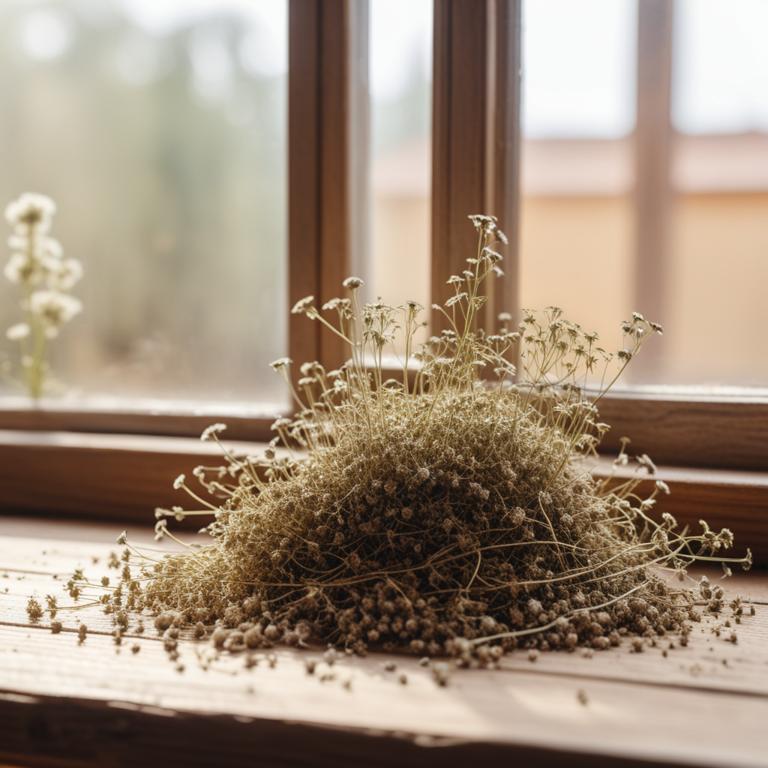
Puffy Eyes: Understanding the Causes and Finding Natural Remedies
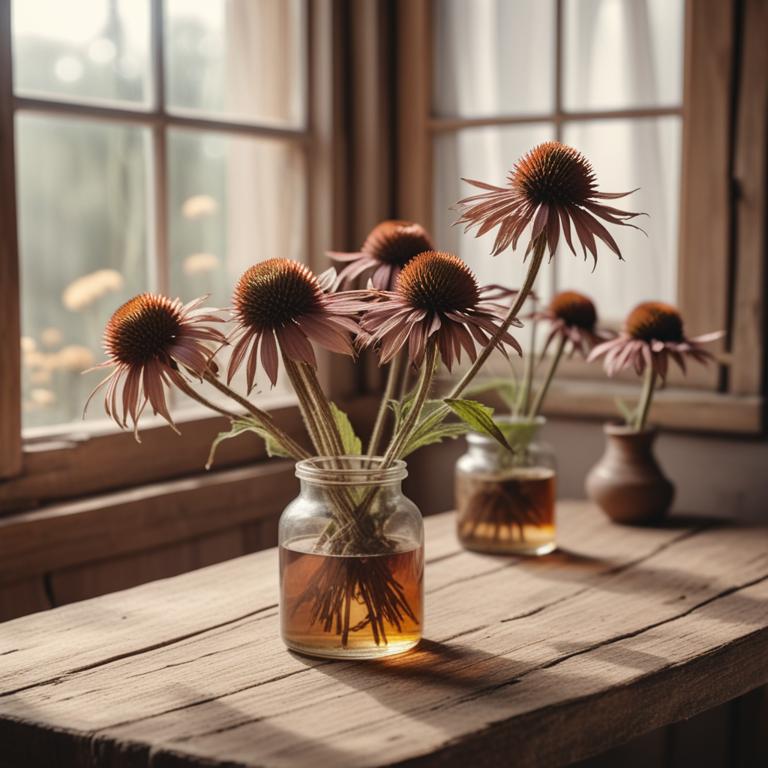
Nose Bleeding: Causes and Alternative Therapies with Medicinal Herbs
